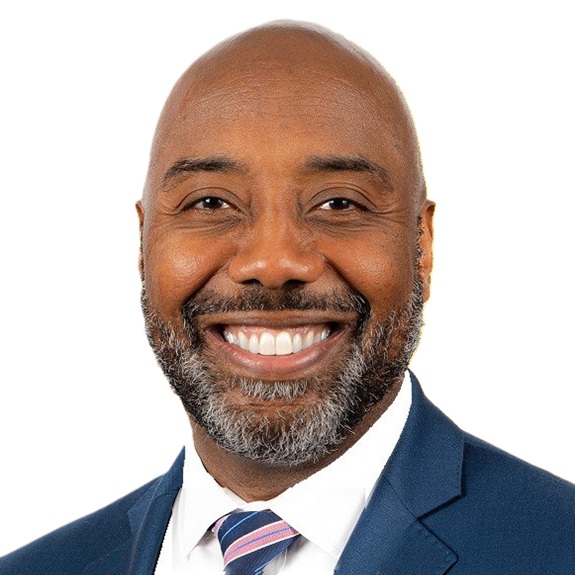Raising Grandkids? Five Financial Considerations
Keeping your personal finances and your retirement on track will be more difficult, but having a financial plan and tapping available resources, among other things, can help.


Profit and prosper with the best of Kiplinger's advice on investing, taxes, retirement, personal finance and much more. Delivered daily. Enter your email in the box and click Sign Me Up.
You are now subscribed
Your newsletter sign-up was successful
Want to add more newsletters?

Delivered daily
Kiplinger Today
Profit and prosper with the best of Kiplinger's advice on investing, taxes, retirement, personal finance and much more delivered daily. Smart money moves start here.

Sent five days a week
Kiplinger A Step Ahead
Get practical help to make better financial decisions in your everyday life, from spending to savings on top deals.

Delivered daily
Kiplinger Closing Bell
Get today's biggest financial and investing headlines delivered to your inbox every day the U.S. stock market is open.

Sent twice a week
Kiplinger Adviser Intel
Financial pros across the country share best practices and fresh tactics to preserve and grow your wealth.

Delivered weekly
Kiplinger Tax Tips
Trim your federal and state tax bills with practical tax-planning and tax-cutting strategies.

Sent twice a week
Kiplinger Retirement Tips
Your twice-a-week guide to planning and enjoying a financially secure and richly rewarding retirement

Sent bimonthly.
Kiplinger Adviser Angle
Insights for advisers, wealth managers and other financial professionals.

Sent twice a week
Kiplinger Investing Weekly
Your twice-a-week roundup of promising stocks, funds, companies and industries you should consider, ones you should avoid, and why.

Sent weekly for six weeks
Kiplinger Invest for Retirement
Your step-by-step six-part series on how to invest for retirement, from devising a successful strategy to exactly which investments to choose.
Darryl and his wife, Jane, are financially very fortunate. They are successful by many measures — they excel in their careers, raised three kids who are now adults and have enough saved to plan for an early retirement with plans to travel around the world. Darryl is even beginning to realize some of his lifelong dreams: The custom motorcycle he has coveted for decades is on order, and his business plan for a Cheers-style establishment — which he and Jane plan to run well into their retirement — is well underway.
One day, a call from Child Protective Services made it necessary for Darryl and Jane to adjust course. They found themselves taking in their four grandchildren, assuming the roles that their son and daughter-in-law could no longer fulfill. Darryl and Jane didn’t anticipate raising grandkids, nor did they know how to navigate this unexpected situation.
While the names above are pseudonyms, this scenario is real — and becoming more common among grandparents. To complicate matters further, almost half of them are still working to support their grandchildren, and over 400,000 custodial grandparents in the labor force are 60 years old and over.
From just $107.88 $24.99 for Kiplinger Personal Finance
Become a smarter, better informed investor. Subscribe from just $107.88 $24.99, plus get up to 4 Special Issues

Sign up for Kiplinger’s Free Newsletters
Profit and prosper with the best of expert advice on investing, taxes, retirement, personal finance and more - straight to your e-mail.
Profit and prosper with the best of expert advice - straight to your e-mail.
If you’re one of them, or considering taking on the responsibility of raising your grandkids, your financial roadmap may need an overhaul — especially if you want to keep your retirement plans on track. Here are a few financial considerations to help prepare for this new phase of late-life parenthood.
1. Figure out a long-term financial plan
The annual cost of raising a child is about $17,000 each year, according to the Brookings Institution. In Darryl’s case, that’s about $68,000 per year that can no longer go toward savings, businesses or vacations abroad.
It’s important to make sure you can shoulder those costs and still fund your retirement. Start by using financial planning tools to analyze your progress toward reaching your retirement goals. Imagine the hypotheticals you might bring up with financial professional: For example, “If I were to take a luxurious trip around the world, could I still retire by 65?” But this time, ask yourself that same question, replacing the concept of taking a trip with supporting your grandkids.
Make sure to leave breathing room in your budget for additional, unforeseen expenses. For example, you might pay more than the average grandparent if your grandchildren are involved in several extracurricular activities. Expenses like doctors’ visits, increased food costs, new clothes and enrollment in athletic teams can add up — and they often aren’t something you can cut from your budget indiscriminately.
If you can’t make it happen, you may have to defer your retirement date. Find out how far you’ll have to push back retirement and adjust your plans accordingly. Consider working with a financial adviser who takes a holistic approach to financial planning. They should take the time to understand your needs beyond your finances, asking questions about your life and what matters most to you and your family.
2. Decide whether to pursue guardianship or adoption
After taking responsibility for your grandkids, consult an attorney to determine whether becoming their legal guardian or adopting them is the best approach for you, your grandchildren and their parents.
If their parents are permanently unavailable, adoption may be a better fit. It will grant you the authority to make critical decisions on your grandkids’ behalf at schools, hospitals and extracurricular organizations. Adoption isn’t inexpensive, however. The cost of an independent adoption (i.e., without agency involvement) varies widely between states and can run between $25,000 and $45,000 — but with parental consent, that figure could be significantly lower. Grandparents should be prepared to cover legal fees and take advantage of federal tax credits for qualified adoption expenses.
On the other hand, if the parents are temporarily incapacitated (e.g., incarceration or drug rehabilitation), guardianship may be a better — and less expensive — approach. Leaving the door open for the parents’ return may be psychologically and emotionally beneficial for all parties involved. And the cost of securing guardianship of a minor is much lower than adoption. Various attorneys have cited a range of $1,500 to $3,500 for legal fees and up to $10,00 for court fees. If you decide to file for guardianship, check with an attorney to see if child support payments are available from the parents.
3. Shift to a parental mindset
Darryl and Jane, like many grandparents, love to spoil their grandchildren, whether it’s buying them their favorite shirt in every color or the latest must-have toys. When they took on the role of raising their grandchildren, this aspect of their relationship quickly changed. They now find themselves saying “no” more than yes.
Though they have the financial resources to buy what their grandkids want, Darryl and Jane now acknowledge that the price of always purchasing their grandkids what they want can add up quickly. As a result, they have slowed their spending to accommodate their new priorities.
For other grandparents raising their grandchildren, the takeaway here is simple: A shift in mindset is crucial to maintaining your retirement savings and realizing your other financial goals.
4. Explore financial resources
Be sure to evaluate the estate of your grandchildren’s parents. If they had catastrophic coverage, life insurance or another form of insurance that pertains to their current situation, that could go a long way toward covering child-rearing expenses.
Another resource to consider is the lifetime gift exemption. You can use this exemption to grant your grandkids money or assets without paying the federal gift tax, instead of leaving those gifts to your estate plan.
5. When in doubt, ask for help
Ultimately, you shouldn’t be afraid to seek financial assistance and guidance from relatives, organizations and government institutions. There is more support available than you may think, and people will go above and beyond your expectations.
You can begin by reaching out to the state organization responsible for child welfare in your community. Try checking your local church or community gathering place for support groups with people just like you. States’ workforce commissions offer job or skill development opportunities that you can use to pursue a career with a higher income.
In addition, check your employer’s benefits for resources that can help ease the cost of raising your grandchildren. There may be benefits covering adoption and childcare support, as well as other family resources.
Finally, if your grandkids are close to graduating from high school, there are specific grants and scholarships aimed at funding their college education that you should also consider looking into.
This isn’t a setback — it’s life
There is no shame in taking on the role of parent in your golden years. Keeping these financial considerations in mind and shifting your spending can help keep your retirement savings and your dreams on track, while providing a nourishing atmosphere for your grandkids. Take it from Darryl and Jane’s experience — their grandchildren are flourishing.
This article has been obtained and is provided as a courtesy by Stephen B. Dunbar III, JD, CLU, Executive Vice President of the Georgia Alabama Gulf Coast Branch of Equitable Advisors, LLC. Equitable Advisors and its associates and affiliates do not provide legal or tax advice and make no representation as to the accuracy or completeness of this information, nor do they endorse, approve or make any representations as to the accuracy, completeness or appropriateness of any part of any content linked to from this article. You should consult your own legal and tax advisors regarding your particular circumstance.
Stephen Dunbar offers securities through Equitable Advisors, LLC (NY, NY 212-314-4600), member FINRA, SIPC (Equitable Financial Advisors in MI & TN), offers investment advisory products and services through Equitable Advisors, LLC, an SEC-registered investment advisor, and offers annuity and insurance products through Equitable Network, LLC. GE-5884319.1(08/23)(exp.08/25)
related content
- Planning for a Non-Traditional Family (Which Is Probably Yours)
- Three Key Ways You Can Help a Child or Grandchild Pay for College
- Four Ways Parents Can Help Kids Be First-Time Home Buyers
- Caring for Aging Parents Takes Planning Ahead and Patience
- Leaving an Inheritance? Is It Better to Give to Kids Now or Later?
Profit and prosper with the best of Kiplinger's advice on investing, taxes, retirement, personal finance and much more. Delivered daily. Enter your email in the box and click Sign Me Up.

Stephen Dunbar, Executive Vice President of Equitable Advisors’ Georgia, Alabama, Gulf Coast Branch, has built a thriving financial services practice where he empowers others to make informed financial decisions and take charge of their future. Dunbar oversees a territory that includes Georgia, Alabama and Florida. He is also committed to the growth and success of more than 70 financial advisers. He is passionate about helping people align their finances with their values, improve financial decision-making and decrease financial stress to build the legacy they want for future generations.
-
 Dow Adds 1,206 Points to Top 50,000: Stock Market Today
Dow Adds 1,206 Points to Top 50,000: Stock Market TodayThe S&P 500 and Nasdaq also had strong finishes to a volatile week, with beaten-down tech stocks outperforming.
-
 Ask the Tax Editor: Federal Income Tax Deductions
Ask the Tax Editor: Federal Income Tax DeductionsAsk the Editor In this week's Ask the Editor Q&A, Joy Taylor answers questions on federal income tax deductions
-
 States With No-Fault Car Insurance Laws (and How No-Fault Car Insurance Works)
States With No-Fault Car Insurance Laws (and How No-Fault Car Insurance Works)A breakdown of the confusing rules around no-fault car insurance in every state where it exists.
-
 For the 2% Club, the Guardrails Approach and the 4% Rule Do Not Work: Here's What Works Instead
For the 2% Club, the Guardrails Approach and the 4% Rule Do Not Work: Here's What Works InsteadFor retirees with a pension, traditional withdrawal rules could be too restrictive. You need a tailored income plan that is much more flexible and realistic.
-
 Retiring Next Year? Now Is the Time to Start Designing What Your Retirement Will Look Like
Retiring Next Year? Now Is the Time to Start Designing What Your Retirement Will Look LikeThis is when you should be shifting your focus from growing your portfolio to designing an income and tax strategy that aligns your resources with your purpose.
-
 I'm a Financial Planner: This Layered Approach for Your Retirement Money Can Help Lower Your Stress
I'm a Financial Planner: This Layered Approach for Your Retirement Money Can Help Lower Your StressTo be confident about retirement, consider building a safety net by dividing assets into distinct layers and establishing a regular review process. Here's how.
-
 The 4 Estate Planning Documents Every High-Net-Worth Family Needs (Not Just a Will)
The 4 Estate Planning Documents Every High-Net-Worth Family Needs (Not Just a Will)The key to successful estate planning for HNW families isn't just drafting these four documents, but ensuring they're current and immediately accessible.
-
 Love and Legacy: What Couples Rarely Talk About (But Should)
Love and Legacy: What Couples Rarely Talk About (But Should)Couples who talk openly about finances, including estate planning, are more likely to head into retirement joyfully. How can you get the conversation going?
-
 How to Get the Fair Value for Your Shares When You Are in the Minority Vote on a Sale of Substantially All Corporate Assets
How to Get the Fair Value for Your Shares When You Are in the Minority Vote on a Sale of Substantially All Corporate AssetsWhen a sale of substantially all corporate assets is approved by majority vote, shareholders on the losing side of the vote should understand their rights.
-
 How to Add a Pet Trust to Your Estate Plan: Don't Leave Your Best Friend to Chance
How to Add a Pet Trust to Your Estate Plan: Don't Leave Your Best Friend to ChanceAdding a pet trust to your estate plan can ensure your pets are properly looked after when you're no longer able to care for them. This is how to go about it.
-
 Want to Avoid Leaving Chaos in Your Wake? Don't Leave Behind an Outdated Estate Plan
Want to Avoid Leaving Chaos in Your Wake? Don't Leave Behind an Outdated Estate PlanAn outdated or incomplete estate plan could cause confusion for those handling your affairs at a difficult time. This guide highlights what to update and when.